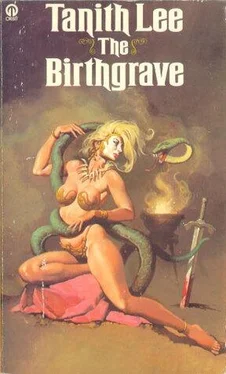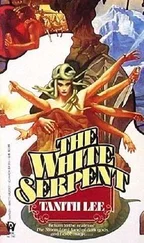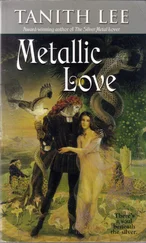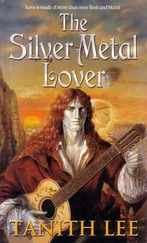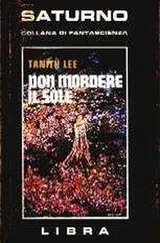Tanith Lee - The Birthgrave
Здесь есть возможность читать онлайн «Tanith Lee - The Birthgrave» весь текст электронной книги совершенно бесплатно (целиком полную версию без сокращений). В некоторых случаях можно слушать аудио, скачать через торрент в формате fb2 и присутствует краткое содержание. Год выпуска: 1977, ISBN: 1977, Издательство: Orbit, Жанр: Фэнтези, на английском языке. Описание произведения, (предисловие) а так же отзывы посетителей доступны на портале библиотеки ЛибКат.
- Название:The Birthgrave
- Автор:
- Издательство:Orbit
- Жанр:
- Год:1977
- ISBN:0-86007-942-2
- Рейтинг книги:3 / 5. Голосов: 1
-
Избранное:Добавить в избранное
- Отзывы:
-
Ваша оценка:
- 60
- 1
- 2
- 3
- 4
- 5
The Birthgrave: краткое содержание, описание и аннотация
Предлагаем к чтению аннотацию, описание, краткое содержание или предисловие (зависит от того, что написал сам автор книги «The Birthgrave»). Если вы не нашли необходимую информацию о книге — напишите в комментариях, мы постараемся отыскать её.
The Birthgrave — читать онлайн бесплатно полную книгу (весь текст) целиком
Ниже представлен текст книги, разбитый по страницам. Система сохранения места последней прочитанной страницы, позволяет с удобством читать онлайн бесплатно книгу «The Birthgrave», без необходимости каждый раз заново искать на чём Вы остановились. Поставьте закладку, и сможете в любой момент перейти на страницу, на которой закончили чтение.
Интервал:
Закладка:
On the fourth day, there was a hum outside like bees. I went out then, and found a vast crowd of strangers eddying in the street. As I came there, there came also a concentration, and congealing. Soon it was no longer many, but one single thing which waited there for me. For miles around, from every ruined village, farm, town, and steading, they had flocked to me, bringing their sores and burns, entreating my blessing. I, the Goddess of Death, who had justly sent the wrath of the volcano against them for their wickedness, would help them now to make better their lives, that they might serve my shrine.
I touched them and they healed. And then there were more, new faces and sores, and these I healed too.
When the streets were emptv, and the steps empty of all but their gifts, I went in and lay down to sleep again, until eventually the noise would call me up once more. It was like a poisonous wound, from which the pus must be eased, but in which the pus reformed, gradually, after each easing, until at last it must be eased again.
Then came a long time, five dawns, five twilights, when there was no sound. I lay still, listening, my eyes wide. I lay, like an insect in chrysalis, awaiting some wrenching calamity to break my cocoon, and turn me out, half-formed. I was still not a living creature. I was a sleeping silent thing, without substance or true life.
Then life came, but wrongly, not as I would have wanted if ever I had been allowed to plan.
There was a great crash of sound: something thrown aside at the temple door, the gifts of untouched food, perhaps. There were steps, brutal, tearing the quiet of the place. I heard and smelled unfear. No terror in this one who sought me, only a raw, uneasy anger.
“Come out, you she-beast!” a man’s voice shouted.
It seemed to burst the temple walls, and break inside my head in brass pieces, that voice which had no fear, the first human voice that had no fear of me.
I got up, summoned irresistibly. I stood by the screen, and already my heart was moving, pounding as it had when I fled from the volcano, although now I ran toward the fire, and not away.
Then the great hand of the voice was on the screen, and the screen was thrown aside, little bits of the lattice snapping against the floor. He was ready to seize me next, fling me aside, my little bones snapping like the ivory. But he was still. No fear perhaps, but ingrained superstition. They had worshiped the She-One, each from birth, and now he seemed to see her here—red robe, white hair, like the red-hot, white-hot spew of the mountain, and the mask, so terrible because it said nothing but “ I am here.”
Under the deep tan of endless sun, his face paled slightly. His lips drew back from tiger-teeth, wolf-teeth, snarling white. He was so much larger than I, taller, great bones, a big spare frame, beautiful and alien in its masculinity. Yet our looks seemed level. Long curling black hair ran down from his head to his shoulders like the black wool of a ram. He wore no mask but his face shook me through and through in a way I could hardly bear, for this face, this seen face, was the face in my dream—long, male, with high-set, narrow, black-chip eyes.
He cleared his throat. His tongue darted on his lips to moisten them, and we stood, each one half in the other’s power, and my sex stirred in me, and woman stirred in me, and an ancient humanity I had not known was mine.
And then he made himself move. His hand closed on my shoulder, hurting and immediate. In the other hand came a dull, sharp hunting knife.
“Well, bitch, and who are you?”
I said nothing. I looked at him, drinking him to quench the surge of life burning up in me, which was not quenched but only burned the brighter.
“You don’t make me quake, bitch. Some healer-witch from a cave in the mountain, eh? Come to live off their charity because they’re fools and afraid?” His hand reached into my hair and pulled it hard. “Hair of an old woman, but not the body of one. And your face, behind this mask—what?”
His dislike washed over me, his contempt curdled in the pit of my belly, and if this was all I was to have of him, then I made it welcome. But his fingers touched the hook of the mask, and I recalled my face—the face Karrakaz had given me. I pulled back. I put up my hand, palm flat against his chest.
“To see my face is death to you,” I said.
His skin burned against my palm; I felt the heartbeat start up under my touch. He ripped my hand away from him, took a step back.
“Very well, healer-woman, hide your plain little looks. And stay here if you want. But no more food, and no more worship. If you want bread, you can work for it. Help us build their homes again, help us salvage what we can in the fields. Help their women give birth to replace what the mountain took from them. Otherwise, starve.”
He turned to go.
I said: “You who were not here when the fire came, where were you then? On the far road, bandit, killing for gold and food. That then was your work. Out of the place that birthed you, without a care for it until the light of the red lava brought you back, hard with your guilt, and cruel with your shame.”
I did not know how the words came, or why, till I had spoken, but he looked around at me again, and his face was white now, the rims of his eyes red, and his nostrils flared on anger and pain, and I knew I had read him accurately and to the last letter.
“So someone whispered to you of Darak, the gold-fisher. Don’t mouth it at me and think you can scare me with it. I’ve told you what’s for you, and there’s the end of it.”
He went from the temple with great strides, his hands clenched, and now I knew my prison very well.
Now I could go.
I was free. No more gifts to me of food, and no more entreaties. He had stopped all that. There was activity and work outside. Once there was screaming, and the noise of things falling just beyond the temple door—some women daring to go against his order.
I had not eaten now for nine days, and felt no hunger or any particular weakness.
I could steal out by night, to be sure no one would see me; I could run across the endless country to the sea, and let them forget their goddess, and let Darak forget her too.
But now that I could go, I would not go at all. I was chained by the roots of my senses like a bitch-dog to a post.
How well Karrakaz had trapped me here, and kept me from all knowledge of where I must walk, and what must be done to free myself. First by the need of these people, now by my need. And if all my powers were dead in me as Karrakaz had said, how had I healed? How? Or had they healed themselves by their own belief in me? It was their hands which had snatched mine. And I seemed to remember a book with an open page:
“Master,” cried the woman, “heal me, for I am sick as you see.” And he said: “Do you believe that I can do this thing?” And the woman wept and said: “Yes, if you will.” “Then, as you believe, so be it,” he said, and went away, not even touching her. And she was healed at once.
The tenth day. Outside: noise, hammering, shouting, sound of moving logs of wood, a work-gang singing. At midday a bell beating to summon who would to a communal meal. Darak and his men had organized things very well it seemed.
Then a great crunching of feet, laughter, voices. After that, quiet. A vast, warm noonday quiet, and a slow, still yellow heat.
I crossed the floor to the doorway of the temple, and stood there. The village was a different thing, caged in places by scaffolding, here and there rebuilt and half-patched with tiles. Far up the street a rough wooden shelter, a brass bell—pulled from some temple roof presumably—swinging a little on a pole outside. A cow wandered lazily in the sunshine. Otherwise, the place was empty. Darak had called them to some council then, on the low hill beyond the houses. Yes, that would be it. A little king on a little throne, lording it because his subjects were smaller even than his smallness.
Читать дальшеИнтервал:
Закладка:
Похожие книги на «The Birthgrave»
Представляем Вашему вниманию похожие книги на «The Birthgrave» списком для выбора. Мы отобрали схожую по названию и смыслу литературу в надежде предоставить читателям больше вариантов отыскать новые, интересные, ещё непрочитанные произведения.
Обсуждение, отзывы о книге «The Birthgrave» и просто собственные мнения читателей. Оставьте ваши комментарии, напишите, что Вы думаете о произведении, его смысле или главных героях. Укажите что конкретно понравилось, а что нет, и почему Вы так считаете.
